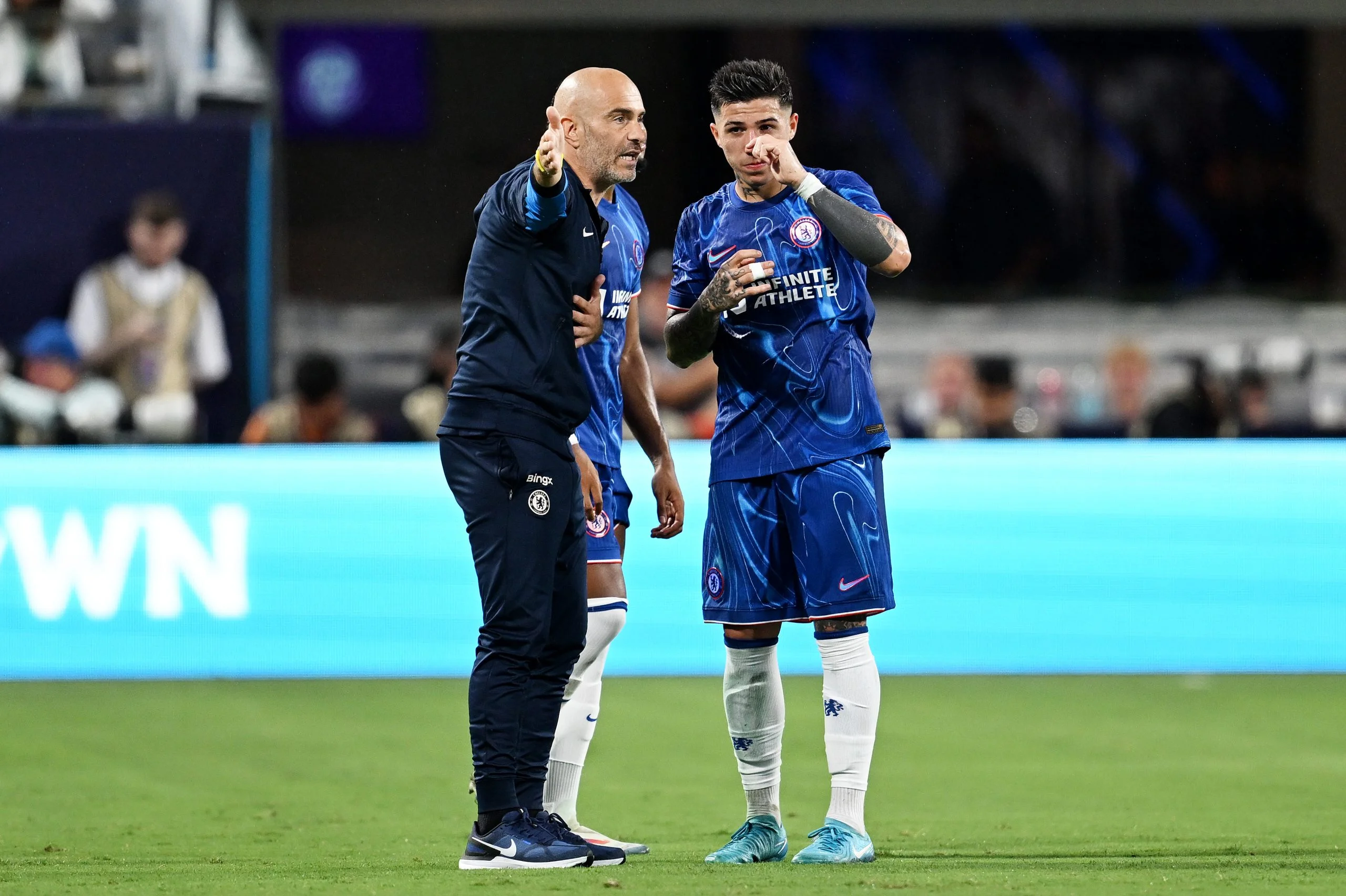The 5 Qualities That Define A True World-Class Footballer
What To Know
- It’s the same with football – a player who can’t consistently perform at a high level might have the occasional moment of brilliance, but they won’t be considered a world-class player.
- So, if a player wants to be considered a world-class footballer, he needs to perform at a high-level week in and week out, be reliable, and be consistent in his availability for at least 3 straight seasons.
Who is a world-class footballer?
Football is a game that has captivated fans around the world for generations. From the local pitch to the grand stages of international tournaments, there’s nothing quite like the thrill of watching the beautiful game played at its highest level. At the heart of every great team, you’ll find world-class footballers, the elite players who possess the skills, intelligence, and drive to dominate the competition.
But what does it really mean to be a world-class footballer? Is it simply a matter of scoring goals or making flashy moves on the field? Or is there something more to it than that? In this blog post, we’ll be exploring the qualities that make a player worthy of the title “world-class.” We’ll dive deep into the technical skills, the tactical intelligence, and the impact that a player has on their team. We’ll also discuss the importance of consistency and recognition in determining whether a player is truly world-class.
Now, I know what you’re thinking. “But, Unimke, why should I care about this? I just want to watch some good football!” Well, my dear reader, understanding what it takes to be a world-class player can help you appreciate the game even more. When you see a player performing at the highest level, you’ll know exactly why they’re worthy of that title.
Consistency is Key
When it comes to football, consistency is a vital quality that separates good players from great ones. The best players in the world don’t just have one or two standout performances – they consistently perform at a high level, week in and week out.
It’s like ordering your favorite dish at a restaurant. Sure, the chef might have made it perfectly one time, but if they can’t replicate that same level of perfection every time you order it, then what’s the point? It’s the same with football – a player who can’t consistently perform at a high level might have the occasional moment of brilliance, but they won’t be considered a world-class player.
Consistency isn’t just about performing well, though. It’s also about being reliable and consistent in your availability. A player who is constantly injured or unavailable won’t be able to consistently perform at a high level, no matter how talented they are.
Take Lionel Messi, for example. He has been one of the most consistent players in the world for over a decade. He consistently scores goals, creates chances, and wins matches for his team, whether it’s for Barcelona, PSG, or Argentina. He’s also been remarkably consistent in terms of his availability – he’s rarely injured, and he rarely misses games due to other reasons.
On the other hand, there are players who have all the talent in the world but can’t consistently perform. These players are like that unreliable friend who always cancels plans at the last minute. You might forgive them once or twice, but if they keep letting you down, you’ll start to lose faith in them. Some good examples are Paul Pogba, Alexander Pato, Adriano, Anthony Martial, Mario Balotelli, etc.
So, if a player wants to be considered a world-class footballer, he needs to perform at a high-level week in and week out, be reliable, and be consistent in his availability for at least 3 straight seasons. It’s not enough to just have a few standout performances – he needs to be consistently excellent, like a perfectly roasted suya that’s never overdone or undercooked.
Technical Ability
When it comes to being a world-class footballer, technical ability is a key component. But what exactly does technical ability mean in the context of football? In simple terms, technical ability refers to a player’s skill and control over the ball. It encompasses everything from dribbling and passing to shooting and ball control.
One of the most important aspects of technical ability is dribbling. The ability to dribble defenders with ease is what separates good players from gifted ones. Just remember how players like Maradona, Zidane, Ronaldo De Lima, Ronaldinho, Riquelmi, Baggio, Okocha, and Messi effortlessly ghost defenders in one-on-one situations. A world-class forward player should be able to take on defenders one-on-one and beat them with skill and finesse. Whether it’s a step-over or a quick change of direction, a player with good dribbling skills can make a huge impact on the game. That was why Henry was considered a world-class player and Van Nistlerooy wasn’t.
Passing is another key aspect of technical ability. A world-class player should be able to make accurate passes over short and long distances. Do you remember Ozil, Guti, Fabregas, Paul Scholes, Pirlo, De Bruyne, etc? They should be able to see the whole field and make split-second decisions about where to pass the ball. A player who can consistently make great passes can create scoring opportunities for their team and keep possession of the ball.
Shooting is also a critical component of technical ability. A world-class player should be able to shoot accurately with both feet and from different angles. I know the first player that comes to the mind of some fans is C Rinaldo. World-class players should be able to strike the ball with power and precision, giving the goalkeeper no chance to save most of their on-target shots. A great goal-scorer can make all the difference in a game, and their ability to score goals can often be the deciding factor between winning and losing.
Ball control is another important aspect of technical ability. A world-class player should have excellent ball control skills, allowing them to trap the ball and make quick, accurate passes. They should be comfortable receiving the ball in tight spaces and be able to maintain possession under pressure. If you remember Berbatov and Zidane’s ball control ability, then you’d understand why this is an important skill to have. A player with good ball control skills can help their team keep possession of the ball and control the pace of the game.
From now on, try as much as possible to pay attention to the technical ability of the players on the field, and you might just gain a newfound appreciation for the skill and finesse of world-class footballers.
Tactical Intelligence
Tactical intelligence is an essential quality that every world-class footballer possesses. It’s the ability to read the game, make quick decisions, and adjust to the ever-changing conditions on the pitch. In simple terms, it’s the football IQ that separates every player on the pitch.
To develop tactical intelligence, a player must have a deep understanding of the game’s strategies and tactics. They must be able to analyze their opponent’s strengths and weaknesses and adjust their game plan accordingly. This requires a lot of study and preparation, as well as the ability to think quickly and make split-second decisions.
One of the best examples of a player with exceptional tactical intelligence is Andrea Pirlo. The Italian maestro was known for his ability to control the tempo of the game, dictate play, and make the right decisions at the right time. He was like a chess master, always thinking several moves ahead of his opponents.
Another player who comes to mind is Xavi Hernandez. The Spanish midfield maestro was a key part of the legendary Barcelona team that dominated world football for several years. Xavi’s ability to read the game and make quick decisions was unparalleled, and he was a master of the tiki-taka style of play.
To develop tactical intelligence, players must also have excellent communication skills. They must be able to communicate effectively with their teammates and coaches, sharing ideas and strategies that can help the team succeed. This requires a lot of practice and teamwork, as well as the ability to listen and take feedback from others.
So, the next time you’re watching a game, keep an eye out for the players with exceptional tactical intelligence. They’re the ones who make the game look easy and keep the fans on the edge of their seats.
Impact on Team Success
A world-class footballer is not just an individual with exceptional skills, but also someone who has a significant impact on their team’s success. It’s not just about scoring goals or creating chances, but also about defending, leading their team to victories, and inspiring their teammates to perform at their best.
Firstly, it’s important to note that a world-class footballer isn’t necessarily the captain of the team. While they may have leadership qualities, they don’t necessarily need to wear the armband to make an impact. However, they do need to have the respect of their teammates and be able to motivate them to perform at their best.
One way a world-class footballer can impact team success is through their work rate. They don’t just wait for opportunities to come their way but actively seek to create them. They put in the hard yards, pressuring opponents, winning back possession, and making runs to create space for their teammates. They’re not afraid to get stuck in and do the dirty work, even if it means sacrificing their own personal glory. This is why I’d always consider Tevez a world-class player and not put the same tag on Aguero. Why I’d boldly say Drogba was a world-class player but Anelka wasn’t.
Another way a world-class footballer impacts team success is through their ability to inspire their teammates. They lead by example, both on and off the pitch. They show a positive attitude, never giving up even when the chips are down. They encourage their teammates, pick them up when they’re feeling down, and celebrate with them when they succeed. They create a positive team culture where everyone feels valued and supported.
A world-class footballer’s impact on team success goes beyond individual statistics. They’re not just a great player, but also great teammates and leaders. They inspire their teammates to perform at their best, lead by example, and make game-changing contributions.
Recognition as One of the Best
When it comes to identifying a world-class footballer, recognition as one of the best players in the world is an important factor. It’s not just about being good at the game, but also about being recognized as such by the footballing world.
Now, there are a lot of ways to measure recognition, but one of the most objective ways to do so is by looking at individual awards. And let’s face it, who doesn’t love winning awards? It’s like being handed a giant trophy that says “I’m the best, deal with it”.
The Ballon d’Or is perhaps the most prestigious individual award a footballer can win. It’s been around since 1956 and is given to the player who is deemed to have had the best year in football. And boy, do players take this award seriously! It’s almost like they’d trade their left foot for a chance to win it.
Take Lionel Messi for example. The guy has won it a record seven times! And Cristiano Ronaldo, who has won it five times, once said that the Ballon d’Or is like the Nobel Prize for football. So yeah, it’s a pretty big deal.
But the Ballon d’Or isn’t the only award that matters. There’s also the FIFA World Player of the Year award, which was merged with the Ballon d’Or in 2010 to create the FIFA Ballon d’Or. This award was later replaced by The Best FIFA Men’s Player award, which is currently given to the best male footballer in the world.
Other awards that are worth mentioning include the UEFA Men’s Player of the Year, the Golden Foot, and the PFA(or equivalent) Player of the Year. Winning any of these awards is a surefire way to gain recognition as one of the best footballers in the world.
Of course, awards aren’t the only way to measure recognition. Another way is to look at a player’s reputation within the footballing community. For example, when a footballer is widely praised by other players, coaches, and fans, it’s a good sign that they’re considered to be one of the best.
Another way I look at whether a player is world-class or not aside from the popular awards mentioned above is to see how many Player of the Month(POTM) awards and league awards(Golden Boot, Assist, or League Team of the Season) in domestic leagues the player plays in.
The essential qualities of a world-class footballer
In conclusion, being a world-class footballer takes more than just raw talent. It takes consistency, technical ability, tactical intelligence, impact on team success, and recognition as one of the best players in the world. These essential qualities are what set elite players apart from the rest.
Consistency is the foundation of success in football. It’s not enough to have one good game or one good season. World-class players consistently perform at the highest level, week in and week out for at least three(3) straight seasons.
Technical ability is also essential. The best players in the world possess exceptional skills, from dribbling to passing to shooting. They have mastered the technical aspects of the game and use them to their advantage.
Tactical intelligence is what separates good players from great players. The best players have a deep understanding of the game and can read the play well, making strategic decisions that benefit their team.
Impact on team success is crucial. The best players make a significant impact on their team’s success, often leading their team to victories and scoring crucial goals.
Recognition as one of the best players in the world is the ultimate achievement for any footballer. When a player is recognized as one of the best, it’s a testament to their hard work, dedication, and talent.
In the end, being a world-class footballer is no easy feat. It takes years of hard work, dedication, and sacrifice. But for those who achieve it, the rewards are great.






